The timescales for mass autonomous driving remain unclear. What we know is that this is not an ‘if’ scenario, merely a question of when, and in the meantime the question is one of transitioning from ADAS to fully autonomous vehicles. We’ll be exploring legal issues, questions of liability and responsibility, the benefits to society, and some of the possible shocks that could develop.
We will also explore auto industry updates on how autonomous car systems are coming to fruition, based on test and evaluation programs, reviews of pilot projects, lessons learned and plans for larger-scale deployments.
This stream will also explore how mass autonomous vehicle deployment could spell the end for high-speed rail and we’ll be asking if the investment in expensive long-distance rail projects would be better spent on developing ultra-high-speed highways for urban and inter-urban platooning, and on-demand underground and surface autonomous vehicle networks.
A theme of this session will be why autonomous cars are trains and why trains cannot compete using 200-year-old technology.

Bogdan Bereczki
product safety and integrity
Autonomous Intelligent Driving GmbH
GERMANY

Synopsis: The introduction of automated driving features into European markets requires not only the technical certification (type approval) of these features but also the legitimization of their use on public roads governed by national road traffic laws. Without satisfying the technical conformity of automated driving features, these may not be legally implemented and sold on vehicles; without conformity to and legitimization of their use by traffic laws, the features may not be legally used on public roads by drivers. The presentation gives an insight into the status quo of the technical regulations and traffic laws currently discussed across the European Union and at the United Nations for on-road automation of SAE Level 3 and 4, which still require a driver to resume the driving task at the end of the operational design domain. For automated driving systems of Level 4 and (academically speaking) Level 5 that do not require a conventional driver to resume the driving task, the presentation outlines the complexity in creating national regulatory frameworks. Argumentation will be outlined to explain why regulatory frameworks are expected to emerge nationally rather than based on supranational legislation for these types of 'driverless' systems.
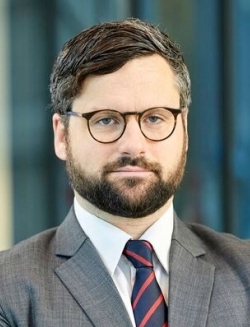
Philipp Egler
partner
Bird & Bird LLP
GERMANY

Synopsis: This presentation will address the underlying contractual relationships with the consumer/customer/supplier as well as tort law and product liability. It will also address specific difficulties that arise from a delay of roll-out of software updates between various suppliers. Software products often require constant updates, either to patch gaps in the security structure or to increase/improve customer experience. Novel questions arise as to how those constant software updates impact liability and warranty periods. Finally, the presentation will focus on recent developments regarding a possible reform of the European Product Liability Directive and its suitability for the challenges of connected and autonomous driving.

Zeyn Saigol
principal technologist
Connected Places Catapult
UK

Synopsis: Verification and validation of AVs is a significant challenge for both industry and regulators, but scenario-based testing has recently emerged as a key component of the solution. This presentation will outline the UK Department for Transport’s MUSICC project, a major initiative that has created an open, secure repository for regulatory scenarios. MUSICC (multi user scenario catalogue for connected autonomous vehicles) will enable the community to interact with a working system and provide feedback to regulators on how scenario-based testing should fit into a future AV certification framework. The presentation will also cover MUSICC’s scenario representation format (which is built on top of OpenSCENARIO) and scenario management strategy.



Alex Geisler
partner, transportation and automotive industry team lead
Duane Morris
UK

Synopsis: In recent times, all the woes and scandals of the automobile industry have arisen from error states in two areas: safety compliance and product compliance. This won't change with mass autonomy, but the trouble spots will be even harder to identify. This glimpse of the future will give OEMs and Tier 1 suppliers an early sight of the challenges, and will address some of the key steps that could be taken today to avoid these future pitfalls.
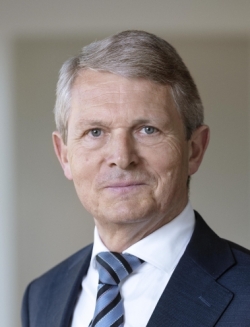
Olivier Lenz
programs director
FIA
BELGIUM

Synopsis: We are working on a further pillar to our My Car My Data initiative by releasing a study showing that the current models allowing access to vehicle data will potentially entail huge economic costs for European consumers and aftermarket service providers. We are further working on user acceptance of autonomous driving within the ARCADE, AUTOPILOT and L3Pilot projects. Throughout the spring, we will run user acceptance evaluation in six pilot cities in Europe, and measure people's readiness to adopt connected automated driving technology.



Katherine Sheriff
knowledge manager, automotive and mobility industry sector group
Hogan Lovells International LLP
USA

Synopsis: What would liability look like in a world with Level 5 autonomous vehicles dominating transit? The benefits and potential liabilities of Level 5 saturation will be discussed. What would liability look like on the road to Level 5? The benefits and potential liabilities of incremental upgrades through the introduction of Level 3, Level 4 and Level 5 autonomous vehicles will be discussed. For each question, perspectives from the United States and the European Union will be examined.

Sebastian Polly
attorney-at-law/partner
Hogan Lovells International LLP
GERMANY

Synopsis: What would liability look like in a world with Level 5 autonomous vehicles dominating transit? The benefits and potential liabilities of Level 5 saturation will be discussed. What would liability look like on the road to Level 5? The benefits and potential liabilities of incremental upgrades through the introduction of Level 3, Level 4 and Level 5 autonomous vehicles will be discussed. For each question, perspectives from the United States and the European Union will be examined.

Michael Lipka
senior manager
Huawei Technologies Düsseldorf GmbH
GERMANY
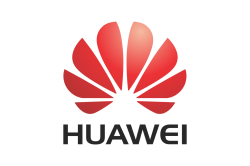
Synopsis: Controlling vehicle autonomy via an onboard computing and sensing environment, particularly in complex traffic situations, is expected to fail in the short term due to the shortcomings of AI and power demand. In turn, automated networking vehicle fleets for shared mobility can go hand in hand with smart city, smart road and smart infrastructure developments starting in geofenced areas. Balanced end-to-end system partitioning, which integrates vehicle, roadside units, edge and cloud, will achieve safe and economic operation of automated vehicles by deterministic methods. In contrast, the full autonomous approach for single vehicles will be challenged by the huge demand for anticipating critical traffic situations.

Claude-Etienne Armingaud
partner
K&L Gates
FRANCE

Synopsis: On March 29, 2018, French President Emmanuel Macron announced his plan to turn France into a global leader in AI. This political leadership was subsequently translated into the Villani report on AI, highlighting autonomous vehicles (AVs) as a regulatory case study, and the Idrac report on AVs. Following these reports, the regulatory framework is currently being amended. This presentation will outline the key changes and how they will affect AV developments in France and in the EU.

Daniel Pauly
partner
Linklaters
GERMANY

Synopsis: This presentation will tackle several important questions concerning ‘shadow mode’ driving in AVs. Which legal implications with regard to the implementation of a 'shadow mode' have to be considered? Who owns the data? Which data is concerned? We will then ask whether OEMs or regional importers need consent. If consent is required, whose consent is it? When is such consent required? We will also discuss the consequences or implications this has with regard to OEMs' documentation (e.g. user manuals).

Maximilian Zahn
associate
Linklaters
GERMANY

Synopsis: This presentation will tackle several important questions concerning ‘shadow mode’ driving in AVs. Which legal implications with regard to the implementation of a 'shadow mode' have to be considered? Who owns the data? Which data is concerned? We will then ask whether OEMs or regional importers need consent. If consent is required, whose consent is it? When is such consent required? We will also discuss the consequences or implications this has with regard to OEMs' documentation (e.g. user manuals).
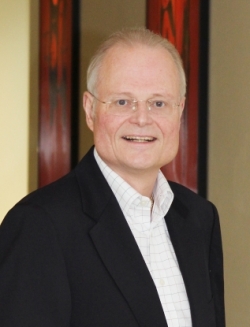
Mathias Schubert
attorney at law, principal
mnslaw&more
GERMANY




Pierre Chehwan
director of strategic alliances and institutional relationships
Navya
FRANCE


Frederic Bruneteau
managing director
Ptolemus
BELGIUM

Synopsis: Learn what insurers are doing today to prepare for ADAS and automation, and how new safety technologies will affect motor insurance. Explore the impact of ADAS on claims losses and premiums, including country- and region-specific examples, and which insurers are already adjusting premiums to ADAS. Identify which technologies will have the largest impact on insurance and how risk is calculated, plus implications for new policy types and clauses such as cybersecurity. The presentation will also address the liability question, mapping out how liability changes with automation and explaining where different auto makers and suppliers stand.

Paul Loustalan
patent attorney - partner
Reddie & Grose LLP
UK

Synopsis: Significant investment has been and is being made in the development of autonomous vehicles, and with that comes a desire to protect that investment by way of patents. As such, patent filings provide a good insight into where R&D is being carried out, and therefore into potential future technologies. We will look into the patent filing trends of the incumbent OEMs, but also of the disruptors emerging quickly into the sector from other markets. What will the core technology be, and who might end up with the key patent rights that everyone will need?

Chris Heiser
co-founder and CEO
Renovo Auto
USA

Synopsis: Today’s autonomous vehicles generate massive quantities of data from the cameras, lidars and other sensors that keep them operating safely (one autonomous vehicle creates >4TB every hour). Although this data has considerable technological and economic benefits, it can also represent significant implications for public privacy. In this talk, we will explore the data generation capabilities of autonomous vehicles, as well as how this data can be managed and used to best serve companies and the general public.

Tom Jansen
global domain leader connected and automated vehicles
Ricardo PLC
NETHERLANDS
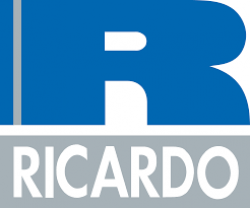
Synopsis: We are seeing the deployment of many 'novel' pilots with self-driving vehicles around the world. Looking more closely, we see that often these vehicles feature a steward or safety driver on board who in fact is legally in control of the vehicle at all times. With new legislation slowly allowing testing without stewards on board, it is essential that we understand the practical implications for autonomous vehicles operating without safety drivers. In this session we will explain the implications for CAV design and testing from our practical experience working with industry leaders in recent (truly driverless) CAV projects.

Mark Thomas
VP marketing/alliances
Ridecell
USA

Synopsis: Much has been written about the technology required to enable mainstream autonomous vehicle services. The right business model will also be critical to driving the adoption and profitability of autonomous mobility services. In fact, data insights and fleet management skills are prerequisites for success in the next stage of city mobility: autonomous car sharing. This session will review the solid practical experience to be gained from leveraging Mobility as a Service platforms to manage shared mobility programs with electric and Level 4 fleets today. Discussion topics include how to maximize asset utilization with multi-service models, and develop membership growth and retention capability.

Harri Santamala
CEO
Sensible 4
FINLAND

Synopsis: We have all been reading in the news about various robotaxi, shuttle bus and fully autonomous vehicle developments, pilots and hype. This presentation covers the vision, the expectations and the current reality of autonomous driving from a critical perspective. As pilots and demos are underway in several countries, it is appropriate to ask when they will really be part of our everyday mobility. This presentation will offer a perspective on this vision and how it connects with technology development, as well as practical experiences that take into account the wider context and a vision of the future of road transportation.

Isabella Hinterleitner
senior scientist
Silicon Austria Labs GmbH
AUSTRIA


Maud Bernard
innovative transportation systems program director
Systra
FRANCE

Synopsis: Compared with existing transportation systems, autonomous shuttles are a new product; numerous trials are being launched all around the world. Autonomous shuttles have the potential to bring new services that traditional public transport cannot offer: ultra-flexibility (any time, anywhere). But what can they promise? Under what conditions? Do they really fit in the long term? Conversely, bus rapid transit (BRT) already exists to provide an efficient transportation solution in the urban context, benefiting from dedicated lanes and priority systems, and offering capacity. How can traditional transportation systems benefit from autonomous technology? And with what added value, risk and efficiency?

Alex Glassbrook
barrister
Temple Garden Chambers
UK

Synopsis: Alex Glassbrook, British barrister and author, examines the legal future of Level 5 vehicles and speculates as to the law and the nature of legal procedures beyond the Automated and Electric Vehicles Act 2018.

Eric Meloche
crash avoidance research engineer
Transport Canada
CANADA

Synopsis: Although there is little to no doubt that full automation will ultimately be a reality, we must ensure that its deployment occurs in a safe and responsible way. From a regulator’s perspective, safety should always remain the paramount priority. As ADAS are leading the way and becoming the norm, we should also ensure that marketing does not mislead consumers and that the various systems’ limitations are communicated clearly. The results of an in-depth, all-season analysis of key ADAS features from 45 commercial systems will be presented, and the main safety benefits and concerns associated with partial automation will be discussed.

Karl Obermair
director - future mobility solutions
TÜV Rheinland
GERMANY
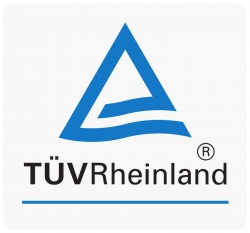
Synopsis: The proponents of automated driving normally substantiate their optimism by referring to the fact that about 90% of all road accidents are caused by human error. The mainstream argument is that if we were able to eliminate the major source of error – the driver – 90% of road accidents could be eliminated too. But of course, this argument is far too simple. Referring to a whole set of fundamental patterns regarding human behavior and typical human reactions to technological innovations, it is far more realistic to expect backlash effects that will weaken the principal advantages of automation.



Malcom Glenn
head of global policy, accessibility and underserved communities
Uber
USA

Synopsis: Uber is using technology to make transportation accessible and reliable for users with disabilities. In more than 600 cities across 64 countries on six continents, we’re committed to continuing to build solutions that support everyone’s ability to move around their communities. Our digital features are available everywhere and make the platform easier to use for people who are blind, deaf or have cognitive disabilities. And in major markets on four continents, we’re utilizing innovative models to bring wheelchair-accessible vehicles to our platform. Learn how we’re making accessibility a meaningful part of what we do, and help us along the journey.

Stéphanie Priou
managing director
Ubiquity Consulting
SPAIN

Synopsis: Although AVs are increasingly seen on our roads, few regulations exist to pave the way for this disruptive technology. Existing laws should therefore be used as examples to support the development of adequate regulatory frameworks worldwide, supporting AV take-up while informing and protecting citizens.

Matthew Channon
lecturer in Law
University of Exeter
UK

Synopsis: This presentation will discuss some of the insurance law challenges that will be faced in the future for connected and autonomous vehicles. The UK has introduced the Automated and Electric Vehicles Act 2018, although there are more insurance challenges in the future. This presentation will discuss some of the insurance law challenges across a number of jurisdictions.

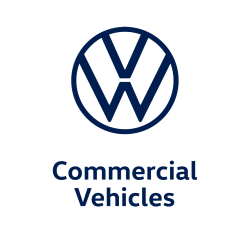

Hans Steege
external relations and corporate responsibility
Volkswagen Commercial Vehicles
GERMANY

Synopsis: Autonomous driving raises numerous legal questions that result from the increase in automation as well as from the fact that vehicles can drive without passengers. Due to the missing human driver, there is no possibility of intervention, and various legal aspects must be taken into account. Increasing digitization, connectivity with the environment, data collection and storage lead to further questions. The presentation provides an overview of current legal issues relating to autonomous driving: civil liability, programming, dilemma situations, data protection (GDPR), telecommunication law, police controls, and prohibition of Level 1-4 vehicles.

Daniel Ruiz
CEO
Zenzic
UK

Synopsis: The success of future connected and automated mobility (CAM) lies in global collaboration. To accelerate the safe deployment of connected and self-driving vehicles, we need to encourage and enable global collaboration across critical areas of testing and development. Working together delivers incremental value to all stakeholders and improves coordination between leading countries in the drive to a mobile future. The UK Connected and Automated Mobility Roadmap to 2030 details developments from the present day to 2030. It presents a single vision that shows dependencies, focuses on investment and articulates the path to scaling capabilities and technologies globally. Greater alignment between countries in areas where it makes no sense to compete will enable the benefits of CAM to be realized at scale more quickly.